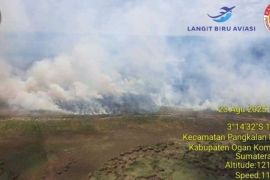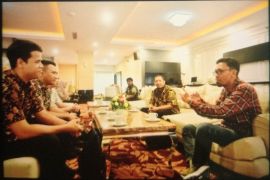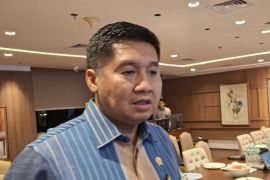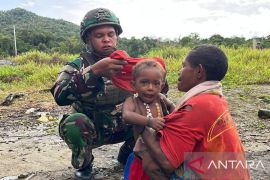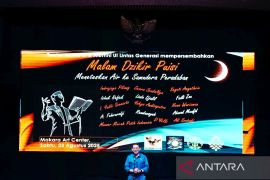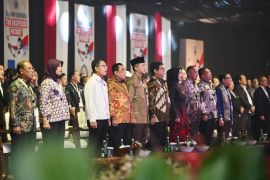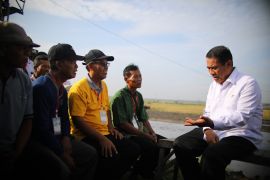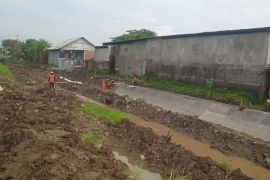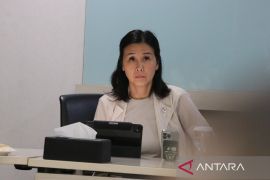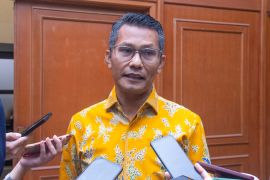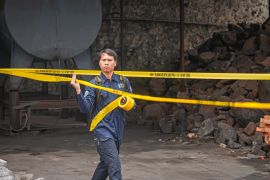"I want the fight against drugs in the country to be braver, more comprehensive, fierce and integrated," President Joko Widodo said.Jakarta (ANTARA News) - The National Narcotic Agency has taken a 16-year-old teenager into custody for possession of 256.80 grams of marijuana, brought from the United States, which he planned to sell in Indonesia.
Agency personnel have named three suspects in the case with the initials X, AML and AMM, all of whom are less than 18 years old. It is suspected that these teenagers were supposed to act as couriers, receive and distribute the illegal drugs.
The involvement of under-aged children in drug abuse has become a concern for the government, as well as the public. According to research carried out by the agency, along with the University of Indonesia, children as young as eight years old have experienced the use of marijuana and 10-year-olds have experimented with various illegal drugs, including inhalants, morphine and ecstasy pills.
In June, nine youths aged 15 to 21 years, were arrested in a raid by the Bali police force, during a methamphetamine feast in Denpasar, Bali. From the urine test conducted following the arrest, it was revealed that all nine teenagers had been using the drug.
These alarming cases are just two of the hundreds and thousands of cases in which juveniles are being exposed to drug abuse.
In 2015, it was estimated that the number of drug users in Indonesia reached 5.1 million. The National Narcotic Agency also reported that everyday there are 40 to 50 deaths caused by drug abuse among the younger generation.
The Convention on the Rights of the Child (CRC) agreement, which was signed by Indonesia in 1989, states that every child possesses the right to be properly educated in reproduction health, which involves HIV/AIDS and drug abuse. They are also entitled to physical and mental protection.
On the contrary, the chances of children being exposed to illegal drugs continue to increase. In this modern day and age, adults, who are supposed to protect the nations future are often blinded by profit and corrupt them instead. Children become the target of narcotics dealers, who take advantage of their innocence and compliance.
The prevalence of drugs in the younger generation shows that the governments efforts to keep children and teenagers safe from drug abuse are not enough and the public needs to support government entities in their efforts.
The agency has continuously reiterated the importance of awareness and education among the youth, beginning from their own homes. They have also emphasized on creating an open and conducive environment within households in order to create a safe and secure atmosphere for children.
A National Battle
In February, President Joko Widodo held a closed-door meeting to discuss ways to fight against drug abuse and rehabilitation treatment for drug addicts. He urged every party to cooperate in checking drug smuggling, and had argued in favor of organizing rehabilitation programs.
"I want the fight against drugs in the country to be braver, more comprehensive, fierce and integrated," he pleaded.
On various other occasions, the President has also addressed the state of drug emergency in the nation, saying that drug abuse continues to be the countrys biggest problem and needs serious eradication measures.
For this reason, Indonesia has become one of the few countries to have imposed the harshest drug laws in the world.
Last month, four drug convicts were executed, one of whom was Indonesias highly dangerous drug lord Freddy Budiman.
He was convicted in a number of illegal drug cases, including the possession of 1.5 million ecstasy pills with the intention of selling them. He was also caught operating his illegal business from a detention centre multiple times.
Earlier this month, National Narcotic Agency Chief Commissioner Budi Waseso met with President Joko Widodo at the State Palace to report the cooperation arrangements made with ASEAN countries to deal with drug distribution.
As the leader of the nations drug abolition efforts, Budi vowed that his agency will continue to explore better ways of eradicating drugs through cooperation with the governments of a number of countries from where drugs allegedly enter Indonesia.
"Modern warfare does not involve firearms. Rather, the lethal weapon is drugs. This is what we are trying to combat as this has become a global problem," Budi stated.
Preserving the Nations Future
Drug abuse is a form of mass destruction that will ultimately lead to creating a "Lost Generation," in which the public, especially the younger generation will be physically and mentally corrupted and kept from being productive.
The first Indonesian President Sukarno had once said that a thousand adults can remove the Semeru mountain from its roots, but 10 youngsters can shake the world.
This statement indicated the vital role that adolescents play in the society. Therefore, it is imperative for every party to protect them from the silent dangers of drug abuse.
The eradication of illegal substances is indeed a lengthy and complicated process, as the crime itself often leads to even more complex and multidimensional problems, but it does not mean that it is impossible.
When the public gets actively involved and stands together with the entire government entities in fighting the threat of drugs, the nation will nurture a generation that is creative, healthy and worthy of national pride. (*)
Reporter: Aria Cindyara
Editor: Heru Purwanto
Copyright © ANTARA 2016
